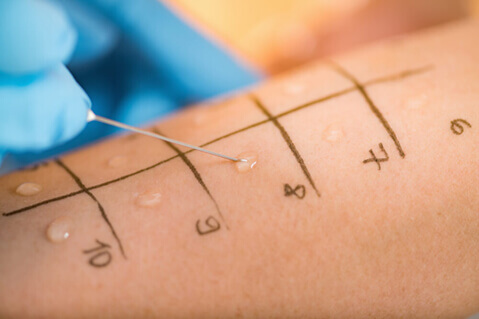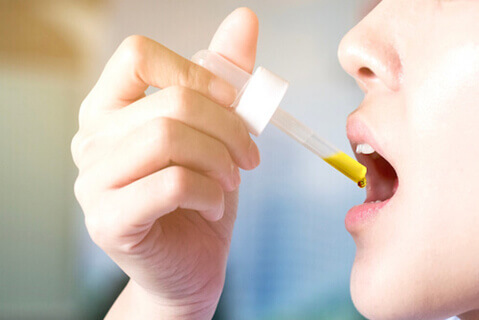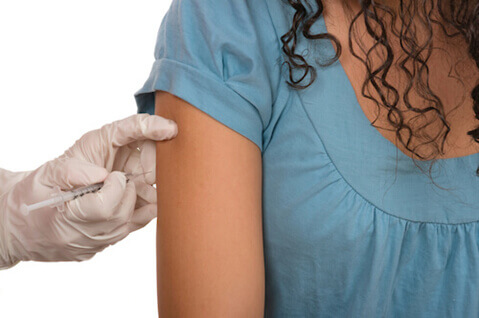
menu


Allergies can occur in anyone. They can also change as you get older. If you didn’t have allergies when you were a child, you can develop them when you are older. Allergies can cause cough, runny nose, nasal congestion and sinus infections and headaches. They can also make asthma and bronchitis worse. Allergies can be hereditary. So if you have allergies, your kids may also have allergies.
Both hereditary and environmental factors affect allergies. Allergies are your body’s response to allergens. Allergens can include pollens, dust mites, molds, animals, bee venoms, medications such as penicillin and even foods. When you breath or eat in these allergens , your body reacts to them by producing symptoms such as runny nose, itchiness, sneezing, swelling, asthma, and even anaphylaxis. Many people react with only minimal symptoms. But depending on the your genetics and immune system, you can have much more severe reactions.
If we can identify what you are allergic to, then we can better target treatment and make it much more effective. Rather than just taking general medications for allergies, if we can test you and find out what you are allergic to, we can tell you how to avoid them, or target medications so that they can be more effective. If you can’t avoid the allergens and symptoms still persist, we can potentially cure allergies by allergy shots or allergy drops. Treating allergies can reduce ear and sinus infections, improve asthma, eczema, and improve bronchitis.
Allergy testing is the first step in determining what you are allergic to. First, you will see the doctor and you will undergo a thorough history and physical examination. If allergy testing is appropriate, you will be given information about allergy testing and what to expect. You will also be given an “Allergy Testing Information Packet”. It consists of instructions about avoidance measures to reduce allergic symptoms, consent form, allergy history form, SNOT-20 questionnaire, Epipen instructions, and medications that you will need to stop prior to testing. You will need to stop antihistamines such as claritin, zyrtec, allegra, benadryl. These can alter the testing results. Most asthma inhalers, Sudafed, and saline sprays do not need to stopped. Beta blocker heart medications, tricyclic antidepressants, MAO inhibitors, and some herbals should be discontinued prior to testing and treatment. You must consult with your cardiologist/primary care doctor prior to discontinuing medications.
Allergy testing can be done on your arm or back. Allergy testing (skin prick testing) is virtually painless and can be done in children and adults. Sometimes, intradermal testing may be needed to confirm allergies. We can test for over 30 allergens and is very accurate. If you are allergic to a particular allergen, the skin response will show a slight swelling and redness (looks like a small mosquito bite). Once you test positive for allergy testing, your doctor will recommend several strategies to help your symptoms such as allergen avoidance, medications, or immunotherapy (allergy shots and allergy drops). Most insurances cover allergy testing. Please contact your insurance company for coverage questions.
There are many over-the-counter medications that help control allergy symptoms. They include nasal steroid sprays, nasal antihistamine sprays, oral antihistamines, decongestants and saline sprays. If over-the-counter medications do not control your allergy symptoms, there are prescription strength antihistamines that can work well for many people.
The only way to cure allergies is with Immunotherapy. This involves introducing safe levels of allergens into your system and allowing your body to become desensitized to the allergens and ultimately reduce the symptoms that you are having. Your doctor will help guide you as to which treatment option is best for you.
There are two main types of Allergy Therapy (Immunotherapy):
Allergy Drops and Allergy Shots.

Allergy shots require frequent visits to the doctor’s office which can be difficult for many patients. SLIT is essentially the same medication as allergy shots but is given under the tongue. As with allergy shots, allergy drops are very effective for relief of allergies and asthma. Allergy drops can treat allergies to trees, mold, cats, dogs, grasses, weeds, dust, mites, mold, food allergies, and other allergies. With SLIT, you take drops under the tongue and wait about 5 minutes. It tastes a bit sweet. You can drink and eat thereafter. The first dose will be given in the office. Thereafter you may take them in the convenience of your home! Allergy drops are taken every day at increasing dosages. Over time, your body will build tolerance to the allergens naturally and your symptoms should greatly improve. Although the treatment period can vary with each patient, the time period for allergy drop therapy is about the same as with allergy shots, 3-5 years.
Allergy drops are ideal for children, people who travel often, students away at college, people who can’t regularly take time off to come to the doctor’s office, people who are highly reactive to allergy shots or have severe asthma and need allergy treatment.
You will receive enough drops for about 3 months at a time. Many patients start experiencing some relief within 1 month of treatment. When you are running low, please inform us ahead of time so that we can order them and not interrupt your schedule.
SLIT is very safe. It can be used in kids as young as 2 years old and adults. You may experience minimal side effects such as itchiness, slight numbness or tingling of the mouth, or stomach upset. These reactions are more likely at the beginning of treatment as antigen concentrations increase. But usually these reactions resolve themselves. Do not discontinue drops without speaking with the doctor. There have been no reported cases of fatal anaphylaxis with allergy drops. In fact, if you can not receive allergy shots because of a reaction risk or have multiple asthma flare ups, in many cases you can take allergy drops instead. You can switch from allergy shots to drops.
With allergy shots, you may get multiple shots for multiple allergens that you are allergic to at each visit. With SLIT most of these allergens can be combined into one bottle.
Although the medication used in SLIT is all natural and approved by the FDA, the route of administration (under the tongue) used in SLIT is not yet approved by the FDA and is considered “off label” use. However, SLIT has been used around the world for over 60 years and in some countries it is their primary form of allergy treatment. In the 1990’s, the World Health Organization (WHO) approved its use and has found it to be safe and effective. Other world-renowned organizations have endorsed allergy drops (SLIT) :
Scientific American: “Thus far studies have found that [allergy] drops were as effective as shots and, not surprisingly, were better accepted by patients and were safer.”
The Cochrane Collaboration: “SLIT (sublingual immunotherapy) is a safe treatment which significantly reduces symptoms and medication requirements in allergic rhinitis.”
Because the FDA has not yet approved SLIT, the cost of the serum is not covered by insurance companies. However, the significant reduction of cost due to elimination of need for transportation to the doctor’s office and time off from work and no co-pays make SLIT very cost effective. Multiple vials needed for highly allergic patients. You will need to pay for your allergy drops in full before they can be ordered. We will call you when they arrive.
The first office visit with the doctor and some occasional follow up visits with the doctor are necessary for proper medical supervision. These are services that are billed to your insurance company.
We hope this information has been helpful to you and your family. We want to take care of you and your allergies effectively and in a safe manner with effective, state-of-the-art techniques so that you can live life again!
Once you have been tested with allergy testing, immunotherapy (allergy shots or allergy drops) may be an option for you. Immunotherapy is used if your allergic symptoms are not controlled by allergen avoidance, if medications are not effective, if you can’t avoid what you are allergic to, etc. The purpose of immunotherapy is to make you less sensitive to allergens and provide a chance for cure from allergies. It is the only treatment that can potentially cure allergies. Medications only can improve symptoms but not cure allergies.
Allergy shots have been proven effective for the control of allergies and asthma. Allergy shots contain the same allergens that you are allergic to based on your skin testing. These shots are given over a period of 3-5 years to slowly build up your immunity to the allergen naturally. It can eventually lead to a cure for your allergies or can reduce the need for medications significantly.
Allergy shots are given once or twice a week at increasing doses. When the highest dose is reached (maintenance dose), shots can be given monthly. It takes about 5-8 months to reach the maintenance dose. Most people start experiencing some relief from their symptoms by 1 month. The total duration of immunotherapy is about 3-5 years, at which time, it can be stopped in many cases. The effect of allergy shots can continue for life. Most patients (over 80%) experience relief from their allergy and asthma symptoms. Some patients may find that they have improved but still need medications at times. The amount of medications needed is often significantly lessened.
After the allergy shot, you will need to wait in the office for 20-30 minutes to check for any adverse reactions. Severe reactions such as anaphylaxis is extremely rare and usually occurs within minutes after the injection. Other reactions may include rash, itchiness, fever or problems breathing. Please notify our nurse immediately. These reactions can be reversed. The risk for reactions can increase if you are on beta-blocker medications (used for heart/blood pressure problems, migraines, eye drops for glaucoma).

1. Wear short sleeves for easy access to the arm
2. You may take antihistamines prior to your shot if you tend to get local reactions
3. You can take antihistamines, topical 1% hydrocortisone cream, and ice pack to reduce local reactions
4. Please notify us of any change in your medications!
5. You can not receive allergy shots if you have a fever or an asthma flare or a viral infection.
6. Avoid exercise for 2 hours after a shot.
We are required to bill your insurance company at the time of preparation of all antigen vials for your allergy shots as determined by your allergy testing. Allergy shots are typically covered by insurance, but the coverage can vary with each insurance company. If a co-pay is required from your insurance company, we are required to collect the co-pay prior to each visit when receiving allergy shots. The first office visit with the doctor and some occasional follow up visits with the doctor are necessary for proper medical supervision. These are services that are billed to your insurance company. Please check with your insurance company for coverage and co-pay requirements. The typical codes used (but not limited to) are 95165, 95115, 95117.